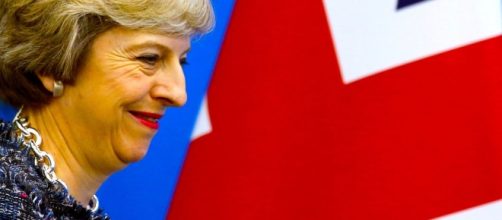The British Prime Minister Theresa May has called a snap general election. The surprise announcement was called outside Downing Street at 11:15 AM British time, this morning. Theresa May contacted the Queen yesterday to confirm to the monarch that she was calling a snap election today. The UK last had a general election in May 2015. However, as a result of Brexit, the Prime Minister wants a mandate from the British people to support her Brexit plans.
A strong vote for the Conservative Party, the current government of the UK, would give the UK government a strong mandate to carry out the government's plans for leaving the European Union.
Before there is a confirmed general election, a third of MPs will have to give the PM their backing for a Snap General Election. This is because of the 'Fixed-Term Parliaments Act.'
Who would win the election?
Polls have proven to be unreliable in recent years. To many Donald's Trump election victory came as a surprise, as polls showed that he would lose the general election. Before the last general election in Great Britain, polls showed that no party would win a majority, and therefore there would be a hung parliament. In other words, two parties would have to form a government, in what is known as a Coalition Government.
Polls indicate that there will not be a hung parliament this time and that the current government will win the snap election.
Only this time, they are projected to win by a larger majority.
Why is there a general election being called now?
In short, the snap general election is being called as a result of Brexit. Brexit has caused division in the UK, both in politics and with the wider public. The hope is that a new general election will clear up that division. Bring the country together. And, in Theresa May's own words offer 'strong and stable leadership.' In other words, a strong and stable leadership who has the support of the people of the UK.
Since Brexit, parties who were against leaving the EU haven't supported the government. For example, the Liberal Democrats leader Tim Farron has called for there to be another EU referendum.
The leader in Scotland Nicola Sturgeon has voiced concern over calls to leave the EU single market, while also stating that she wants a second independence referendum. While Sinn Fein in Northern Ireland has called for a border poll (Brexit could affect the freedom of movement between Northern Ireland and the Republic of Ireland). And in Wales, Plaid Cymru has asked for their own independence referendum for Wales.
In effect, Brexit has seen political parties in the UK disunited. A new general election in the UK will show whether or not those concerns from their political representatives are reflected with the wider UK population.

